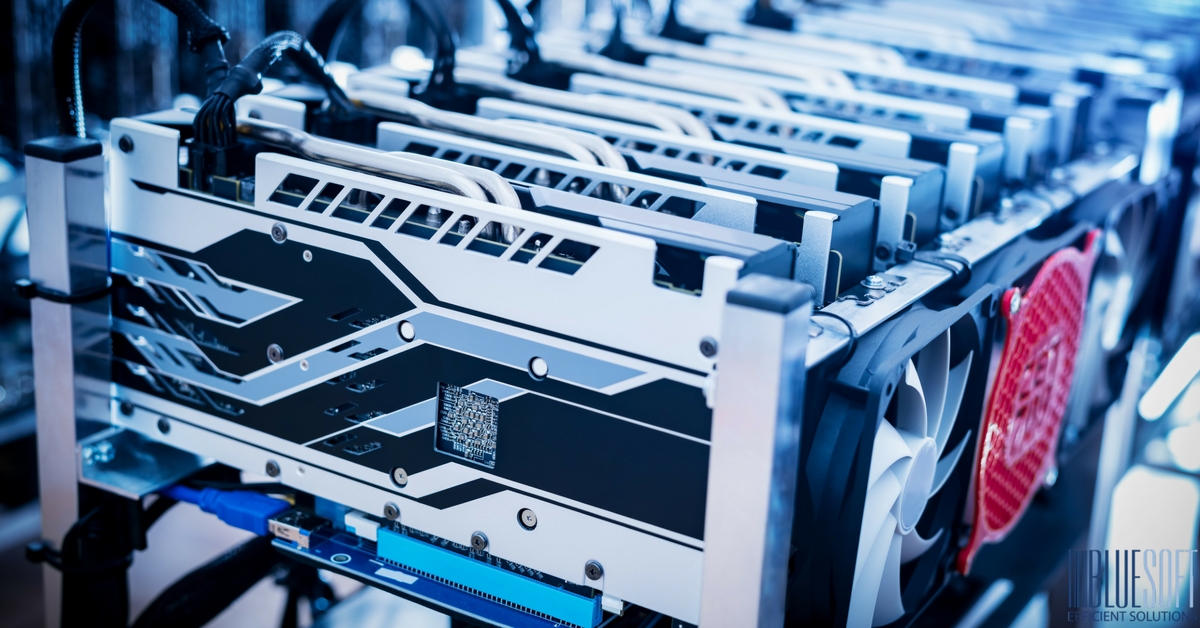Blockchain + Cloud Computing (Here’s Everything You Need to Know Before You Start)

Did I hear someone say ‘Blockchain’ again? This word has been on everyone’s lips recently, and that’s not only due to the immense popularity of Bitcoin and other cryptocurrencies that use it. Blockchain is seen as one of the most transformational technological advances of the near future, so it definitely demands our attention.
In this article, we will try to answer the following questions:
- What is blockchain and how does it work?
- How is blockchain used today and what are the most popular use cases?
- How can you line up blockchain services with a cloud environment? What support do the cloud vendors provide for blockchain projects?
Are you ready?
Blockchain technology explained
According to Wikipedia, a blockchain is “a continuously growing list of records, called blocks, which are linked and secured using cryptography” where “each block typically contains a cryptographic hash of the previous block, a timestamp and transaction data.” Now, let’s break down this definition into digestible chunks.
A list of records refers to a database. Records are stored as blocks, and every block is linked to the previous ones and includes the cryptographic hash of the preceding block. Linked blocks form a chain, hence a block-chain. The integrity of a blockchain is confirmed all the way back to the initial block in the chain. Thanks to such design, it is impossible to alter any block in the blockchain without compromising its integrity.
What makes blockchain secure?
You can think of a blockchain as a decentralized and distributed database or a ledger, working over the Internet and using a peer-to-peer model. Such a solution is used to record transactions across many devices in a secure manner as authenticity is provided by a mass collaboration of peer-to-peer nodes across the world.
Blockchain makes it impossible to endlessly reproduce a digital asset. It also verifies whether each unit of value was transferred only once. Thanks to data distribution across a network, blockchain eliminates the risks related to a central data repository. A single node cannot alter the data, as any change has to be confirmed by the remaining nodes as well. However, blockchain’s greatest power is that it requires no third-party service provider’s authorization to complete a transaction, which reduces the overall costs.
Why do I need blockchain?
Although the best-known use of blockchain is the distributed ledger for cryptocurrencies, its potential to transform business operating models is much greater.
Essentially, blockchain is the foundation for businesses or other technologies. Everywhere a distributed model applies, there’s a room for blockchain to be implemented.
- Land registries: For example, the Swedish Land Registry uses blockchain to secure land sale deals; it helps Indian authorities fight land fraud, and the Republic of Georgia is piloting a blockchain-based property registry.
- Smart contracts: Some new opportunities open up for smart contracts, which are contracts executed without human interaction when certain conditions are satisfied. Imagine that you’re buying an item over the Internet, e.g., on eBay, and you want to make sure your transaction is secure. Thanks to blockchain, you will be able to protect your purchase by performing an automatic payment using a smart contract after your order is complete and the package delivered.
- Decentralized storage: Other use cases for blockchain can be decentralized networks such as distributed libraries or file storages.
- National currencies: Some governments are investigating the use of blockchain to create their national cryptocurrencies.
- And other… Also, banks are now researching how they could leverage blockchain to securely transfer and store money.
The possibilities of using blockchain are countless. It’s no longer the question of whether organizations will use that technology, but how soon, and for what purposes.
Build blockchain applications in the cloud
First of all, you may see blockchain itself as a distributed cloud. But that’s not the point here. Let’s take a look at how the major public cloud vendors can support your blockchain project with their products.
AWS – intrigued, but not crazy about blockchain
We’ll start with AWS. It may come as a surprise, but AWS doesn’t offer any blockchain-based services. At least not for the moment. In the keynote speech at the last re:Invent conference, AWS CEO Andy Jassy shared his view on the blockchain technology. He claimed that except for distributed ledger, the use cases for blockchain remained very limited for now, and AWS as a business would not invest in a technology just because it’s cool. However, this does not mean that the company rejects blockchain altogether. They’re investigating how blockchain can benefit their customers in the near future.
At the moment, AWS is backing blockchain through their partner ecosystem. The company accepts proposals from businesses involved in Healthcare and Life Sciences, Financial Services, Supply Chain Management, Security or Compliance.
Although AWS does not provide any native blockchain products or services, you can still use blockchain products on the AWS cloud. Currently, in AWS Marketplace, there are 14 products related to blockchain, such as Blockchain Wallet Service, which is an API for a blockchain wallet, BlockApps STRATO, a platform to develop Ethereum blockchain solutions, or Corda, a blockchain platform designed to record, manage, and automate legal agreements between business partners.
You can find all these products by clicking on the following URL: https://aws.amazon.com/marketplace/search/results?x=0&y=0&searchTerms=blockchain&page=1&ref_=nav_search_box.
IBM – having high hopes for the technology
Unlike AWS, the company’s competitors like IBM or Microsoft aggressively advance projects related to blockchain.
If you are an IBM Cloud’s customer, you can immediately start experimenting with the blockchain technology. IBM launched an IBM Blockchain Platform, which is “an integrated platform designed to accelerate the creation of a “built for business” global blockchain network across industries and use cases.”
With the Blockchain Platform, you can develop a blockchain application or activate a blockchain network. IBM claims that it takes no more than 5 minutes to model a blockchain network using their platform. The company also provides a free developer environment, based on Hyperledger Composer, which will help you develop, test, and deploy your business network in four steps. With the Platform, you may also develop, govern, and operate the network, and invocate and validate transactions.
The enterprise membership is already available so that you can try out the Blockchain Platform any minute.
To get more information about IBM Blockchain Platform, visit the platform’s web page: https://www.ibm.com/blockchain/platform.
Microsoft – blockchain services via Azure and partner network
Microsoft also allows you to benefit from blockchain on their cloud. The company provides a native product, Azure Blockchain Service. It is a set of solution templates that deploy and configure your choice of blockchain networks. To use it, you’ll need a minimal level of Azure and blockchain knowledge.
Two software plans are provided: Ethereum Consortium Blockchain and Hyperledger Fabric Single Member Blockchain. The first solution deploys an Ethereum simulated multi-member network and allows you to get started with smart contracts or application development. The second solution deploys a Hyperledger Fabric single-member network that runs membership services, communication services, and executes transactions.
With Microsoft, you can also start building blockchain services through one of the company’s trusted partners in a similar way as you can do it in AWS. With R3 Single Network, you may deploy a pre-configured network of Corda, deploy and configure a Quorum blockchain or create a blockchain network, or connect to the Chain’s test network.
More details about the Microsoft’s offer are provided here: https://azure.microsoft.com/en-us/solutions/blockchain.
Is it too early for blockchain + cloud computing?
For the time being, Microsoft and IBM are much more supportive of blockchain than AWS. Nevertheless, I believe that regardless of Andy Jassy’s words, AWS will soon invest more resources in the technology. Eventually, AWS is one of the most customer-driven businesses in the world. If the demand for blockchain continues to increase, the company has no other way but to satisfy it.
Whatever AWS decides to do, you shouldn’t be afraid of using cloud computing for you blockchain projects. Even now, there are different solutions by cloud vendors available on the market that can support your blockchain development. There’s no point waiting when you can start changing the world with blockchain + cloud today!
What Can We Do For Your Business?




